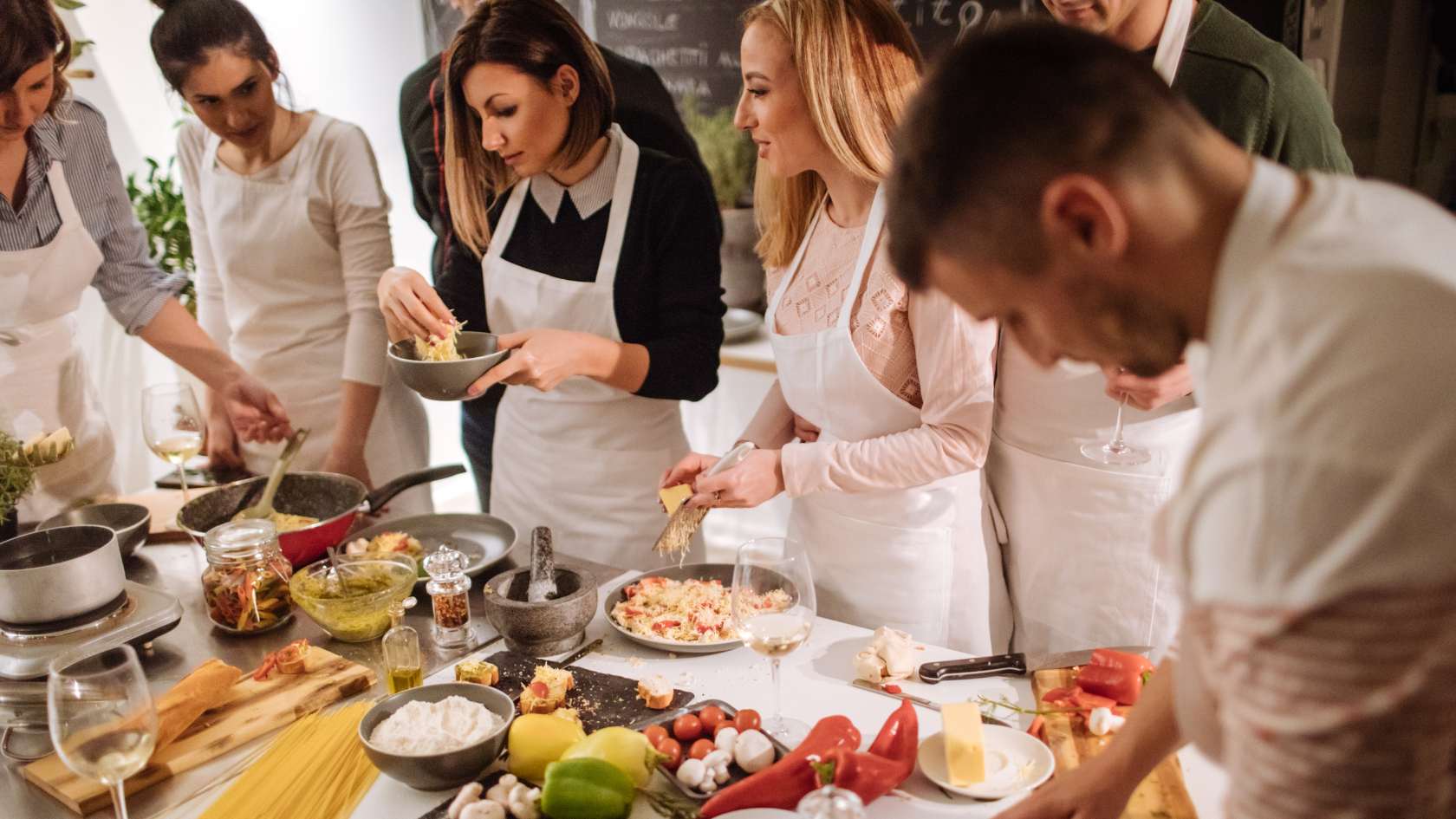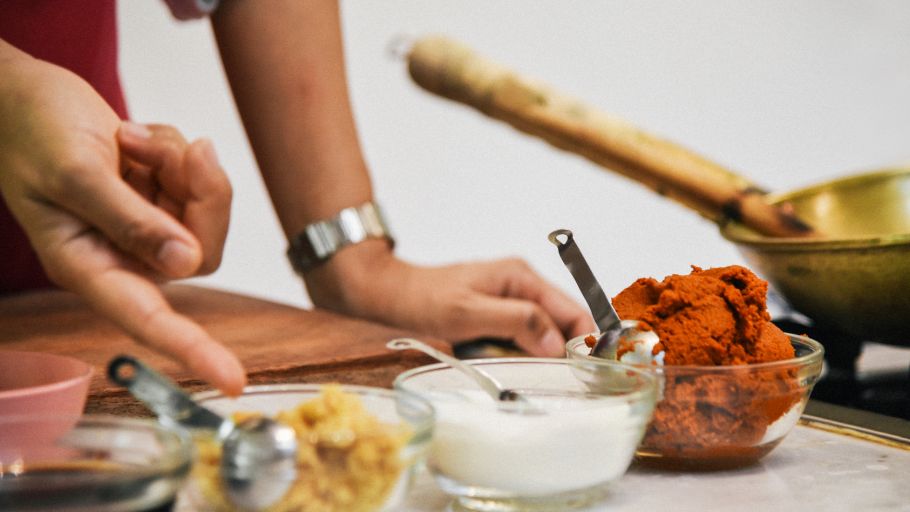How to Host a Cooking Class at Your Venue

Looking for that new strategy to bring in new customers and reinvigorate interest from repeat customers? Why not offer a chef cooking class? Hosting a workshop or culinary demonstration at your restaurant or venue can transform an ordinary space into a vibrant hub of culinary creativity and community engagement. It adds a unique dimension to your brand not to mention, cooking classes and similar ticketed events bring in added revenue.
This is a guide on how to host a memorable cooking class that not only entertains and educates your guests, but brings a new revenue stream to your business.
Reasons to Host a Cooking Class
A restaurant or venue might host a lesson or collaborative session around food and beverages for several reasons, each offering unique benefits to the venue, the participants, and potentially other stakeholders. Here are some of the key reasons:
Diversification of Services
Hosting a cooking class allows a venue to diversify its offerings, attracting different types of customers and providing unique experiences beyond what they might typically offer. For example, a restaurant or hotel can attract non-dining guests to explore their facilities.
Increased Revenue
Cooking classes can be an additional source of revenue. By utilizing space during off-peak hours and selling tickets to the class, a venue can generate income that complements its primary business.
Brand Awareness and Loyalty
Cooking classes can help increase brand awareness and loyalty among participants. Participants are likely to share their experiences with friends and family or on social media, providing free marketing. A positive, engaging class can turn attendees into regular customers of the venue’s primary services.
Community Engagement
By hosting cooking classes, a venue contributes to the local community’s cultural and educational activities. It can be a way to engage with the community, offering a space for locals to learn new skills, meet people with similar interests, and strengthen community ties.
Expertise Showcase
For venues related to food and beverage, such as restaurants, hotels, or culinary schools, cooking classes offer a platform to showcase their culinary expertise and philosophy. It’s an opportunity for chefs to highlight their skills and for the venue to reinforce its reputation as a culinary leader.
Team Building and Private Events
Venues might host cooking classes as part of corporate team-building events or private parties. These sessions offer a unique, interactive experience that can serve as a fun and educational activity for corporate teams, families, or friends.
Educational Purpose
Cooking classes can serve an educational purpose, teaching participants about nutrition, food sustainability, and the cultural significance of certain cuisines. This educational aspect can attract individuals interested in these topics, expanding the venue’s reach.
Utilizing Idle Space
If a venue has unused or underutilized space, hosting a cooking class can be an effective way to make use of this space. It allows the venue to maximize its assets and reduce wasted space.
Attracting Tourists
For venues in tourist areas, cooking classes can offer tourists an authentic local experience. Learning to cook local dishes can be an attractive activity for visitors looking to immerse themselves in the local culture.
Cooking Class Inspiration
Be sure to offer a variety of engaging experiences for participants, ranging from traditional cooking techniques to more modern and unique culinary adventures. Here are a several examples to inspire you:
- Around the World in Eight Dishes
- Farm-to-Table Freshness
- Vegan Adventures
- Zero-Waste Kitchen
- Street Food Stars
- Secrets of Sourdough
- Cocktail Crafting and Pairings
- Under the Sea: Seafood Mastery
- Cheese Making Workshop
- Desserts of the World
- Spice Market: Mastering Flavor Profiles
- Fusion Kitchen: Creativity Without Borders

Step-by-Step How-tos for Hosting Cooking Classes
1. Plan the Cooking Class Details
Before you commit to a series of daily, weekly, or monthly cooking class options, start with one. Make sure to answer the questions in this list before you get to promoting:
- Who will host the class? If the mastermind behind your signature dish is available to lead the class, offer the spot to him or her.
- What format for the cooking class? You could opt to use any of these formats: demonstration, hands-on, or a mix of the two
- What will you be cooking? For a class like this, recipes should be both fun to make and easy to cook. Don’t give away your restaurant’s secret recipe, but also don’t expect people to be thrilled to throw sauce and cheese on a pizza unless you’re starting from scratch. If you can’t decide on a dish, check your most popular menu items.
- How much will the class cost? Factor in the chef or host’s time, the ingredients, and any sort of takeaways you’d like each participant to have, such as a branded T-shirt or small take-away. If you’re closing your venue for the class, be sure to factor that in as well.
- When will the class be? Pick a date for your class. It could be a holiday or seasonal date, or during a slower period. Picking a time where your restaurant’s traffic tends to be a bit slower could bring more people in during this time period.
- How will you manage the event? Revolutionize your cooking classes and more using Tripleseat Tickets. Easily manage, execute, and analyze events of any scale or complexity directly through the Tripleseat platform. Effortlessly promote ticket sales on branded forms, get paid quickly with secure payments, and be able to analyze and monetize your ticketed events.
2. Promote the Class
Once all the details are figured out, it’s time to market your cooking class. Here are some strategies you can use to fill up the calendar:
- List it on your website. Posting the event on your website makes all the information clear. Ideally, those interested can register right from your website, or you can link to an events page from your website. Creating a webpage for your event also helps with SEO — if someone in your area searches for “local cooking class” or “chef cooking class near me,” your page will help you be one of the first results.
- Post it on social media. Make an event on Facebook so people can share the page with their friends. You can also post photos or event links on sites like Instagram or Tik Tok to gain more frequent exposure. If your chef or host has an established presence on social media, have him or her share the invite as well. If you really want to give the event an extra push, try creating a social media ad for your cooking class — 75 percent of restaurants advertise on social media, so the industry agrees that this method of marketing is indeed effective for getting customers in the door.
- Table tents and posters. For your regular diners, table tents and signs work as great internal advertising. Since these guests come to your restaurant and already like your food, they should be among the first to jump at the opportunity to take a cooking class at your restaurant.
- Contact press or local publications and websites that list local events. You can easily find them by searching for “things to do in (city/town)” on Google. Reach out to these publications and ask to be listed on their site with a link to the registration page. Locals, visitors, and people just trying to plan their weekends will see the event — and it just might catch their eye.
3. Host the Cooking Class Event
The moment of truth! Time to host your cooking class. Let’s go over a few reminders for the big day:
- Keep your class engaged. Make sure you’re always keeping your audience entertained. Give them instruction, show them a demonstration, make ‘em laugh, tell them a story of how the recipe was founded, and (needless to say) put them to work in the kitchen. When you’re starting a recipe from scratch, take them on the journey through captivating words and activities.
- Involve everyone. Whether this is a private class for a couple on a date or a group event filled with strangers, make sure everyone is involved. If you’re using a tool that is scarce (certain types of knives, a pasta maker, etc.), give everyone a turn to have a good time.
- Give class members something to take home. Make sure attendees have some food to take home with them. If you think they’ll be eating all of their meal in your restaurant, offer them a souvenir or set aside some leftovers for them to share with friends and family who may sign up for your next class after they taste it.
4. Collect Feedback and Analyze the Results
Now’s as good a time as any to face the fact that your first restaurant cooking class won’t be perfect. For your first event, take note of what went wrong and follow up with attendees for feedback. Encourage them to reach out to you with feedback or leave comment cards during the class. Create a post-event branded survey to collect information. Make some changes to the class to make it even better next time.
5. Repeat Those Classes
Once you solidify a successful plan for your chef cooking class, develop a new promotion plan. If you’ve made any major changes to your class (“Now offered twice a week!” “Book a private session for Valentine’s Day!”), promote these as well. Continuous promotion — especially on social media and your website — keeps your cooking classes at the top of your guests’ minds when they’re looking for something new to do.
Turn Your Cooking Class into Revenue
Tripleseat Tickets allows you to create ticketed events easily. Position your venue into the place for events that everyone remembers. Schedule a demo to learn more.
